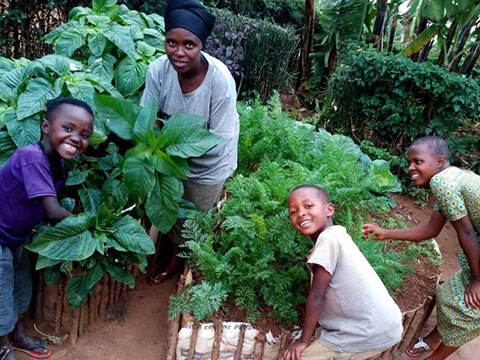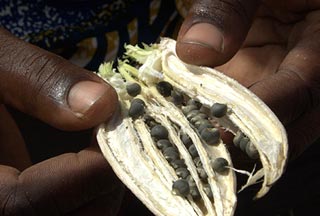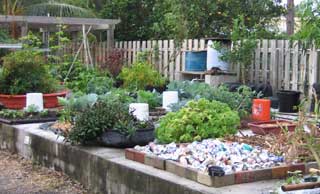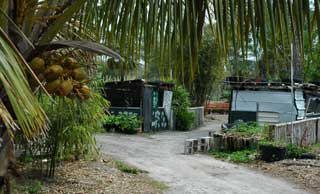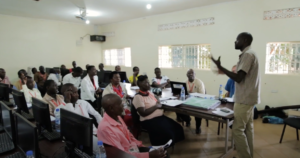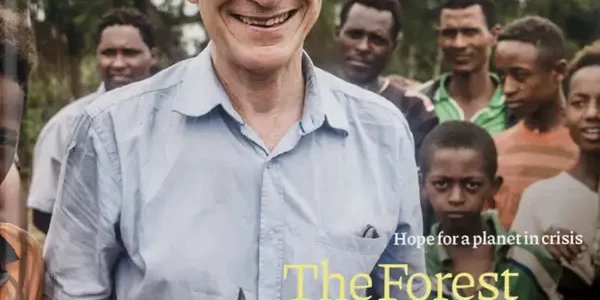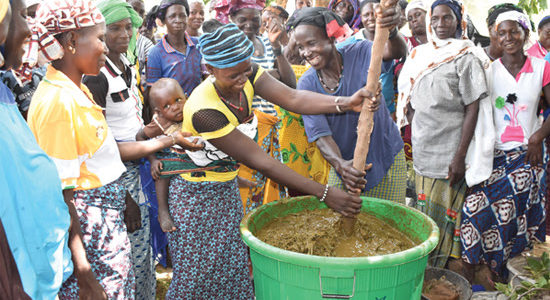“Our capacity to create animations and videos is limited, but through working with SAWBO and organizations like Access Agriculture, we could incorporate their training videos, and it’s been a very impactful partnership.” says Steve Snyder, ICT Specialist with ECHO.
ECHO introduces sustainable crops, techniques, and technologies to farmers around the world who are struggling to feed their families. ECHO’s mission, of going out into the world to provide training and resources that empower small-scale farming families to thrive, is enhanced through its partnership with Scientific Animations Without Borders (SAWBO).
ECHO hosts SAWBO animations and distributes them to its affiliated outreach agents and local farmers in more than 190 countries through its online platform, ECHOcommunity.org, and the ECHOcommunity Mobile App. “ECHO’s emphasis is on local and sustainable farming and these animations provide the perfect tool for getting information to farmers worldwide,” said Nate Flood, ICT Manager with ECHO.
“Our goal is to help small-scale agriculturalists and to do that we have to be able to help them make the most out of what they have available,” Flood said. “But the core of ECHO is that we are a connecting organization. We don’t pretend to be able to do the amount of research that would be necessary to accomplish all of our goals. What we try to do is be a conduit between missionaries, agricultural development workers, researchers, and organizations around the world like SAWBO.”
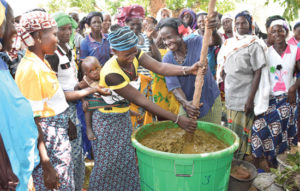
ECHO’s focus on small-scale agriculture and sustainable farming is where its mission overlaps with SAWBO’s mission of providing university-based agricultural research to farmers worldwide.
“Small-scale agriculture feeds a huge amount of the world and it gets a very small amount of attention in the research world,” Flood said. “Generally, small-scale agriculture is used in places with the world’s greatest food insecurity, as well as some of the most difficult climate and soil conditions on earth. What we work to do is to mitigate many of those conditions by suggesting technologies, appropriate plants, and techniques to provide the best yield in the most appropriate ways that we can.”
ECHO provides direct training to outreach agents who then take that information to small-scale farmers and contextualize the training to their specific needs. ECHO equips these trainers with SAWBO animations that address relevant topics, translated into multiple languages spoken by small-scale farmers. SAWBO’s animations have been a revelation for ECHO’s mission, said Steve Snyder, ICT Specialist with ECHO.
“One of the things that popped up when Nate and I first got together four years ago to work on these projects was that there was a real desire to have more training videos available for all the great material that was out there,” Snyder said. “We were seeing the need for training videos for people who didn’t have the ability to read, and we needed access to information for particular languages. That’s when I remembered a conversation from a couple of years prior with Carl Burkybile of Healing Hands International, a SAWBO partner, which led us to contact SAWBO co-founder Barry Pittendrigh. Our capacity to create animations and videos is limited, but through working with SAWBO and organizations like Access Agriculture, we could incorporate their training videos in our work, and it’s been a very impactful partnership.”
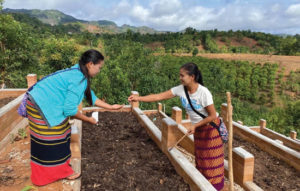
Snyder said that ECHO makes available all SAWBO animations for the approximately 20,000 development workers the organization collaborates with and thousands of others who have access to the videos at https://www.echocommunity.org/.
The website navigation features 10 languages and is optimized for use for people around the world. A majority of those accessing ECHO’s online resources are subsistence farmers and these animations reach those farmers through the ECHOcommunity website. ECHO has also developed an app that allows animations and other material to be downloaded and shared in areas where there are no internet connections.
In addition to sharing agricultural information, which is the primary focus of ECHO, Flood said he appreciates SAWBO providing animations on health and wellness and community development.
“Holistic development is really important to our mission, so many complexities are interrelated. For example, when you’re talking about building the resilience of small-scale farming families, promoting health and wellness is also key,” Flood said. “What we have learned is that while we have our specific area of focus, the valuable knowledge resources SAWBO offers in other areas is helpful to those we serve. Building healthier, stronger communities requires collaboration. Collaboration is what helps true transformation take root.”
“We’ve been very appreciative of the good spirit in which SAWBO offers these resources. And even more so, we appreciate our common purpose of sharing a message of hope to people who really need the information that is provided in the videos,” Snyder said.
